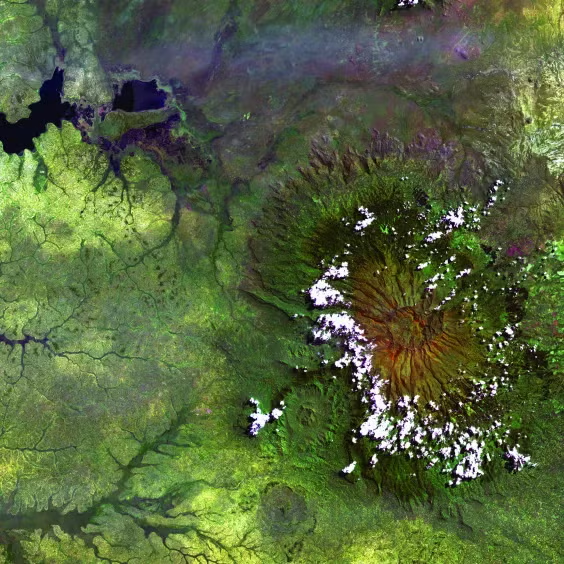
What is the Ghana Climate Vulnerability Hub?
The Ghana Climate Vulnerability Hub is a transformative climate risk and vulnerability information portal developed as part of Ghana's National Adaptation Plan (NAP) Readiness Project. Created through a collaborative partnership between the Environmental Protection Agency (EPA), the Uited Nations Environment Programme (UNEP), and the Green Climate Fund (GCF), this innovative platform represents a comprehensive step forward in Ghana's climate adaptation journey.
This Hub emerges from the critical recognition that effective climate change adaptation requires accessible, reliable, and actionable climate information to support decision-making across all levels of society. Operating at national, district, and community levels, the platform ensures climate information is relevant whether used by national policymakers developing sectoral adaptation strategies or local community leaders planning resilience initiatives.
The platform embodies Ghana's commitment to inclusive and gender-responsive climate action, incorporating gender considerations throughout its design to address differentiated climate impacts on various population groups. The Hub establishes robust data-sharing protocols that enable regular updates and maintain the relevance of information over time, creating a collaborative ecosystem where climate information flows seamlessly between institutions.
What information does the Ghana Climate Vulnerability Hub provide?
The Hub provides comprehensive climate and vulnerability data addressing Ghana's significant climate challenges. The platform offers crucial information about alarming climate projections and integrates advanced GIS-based mapping capabilities with comprehensive datasets covering:
- Climate projections and scenarios
- Demographic indicators and population data
- Environmental conditions and ecosystem services
- Development parameters and infrastructure
- Interactive mapping tools for biomass energy consumption
- Agricultural risk maps combining crop production with climate risks
- Water resource assessments and security indicators
Interactive mapping tools display biomass energy consumption overlaid with population density and wood fuel supply areas, all of which are contextualized within climate change scenarios. For agriculture, the portal provides integrated risk maps combining crop production data with surface water flows, soil erosion rates, drought patterns, and flood risks, enabling a comprehensive assessment of climate impacts on food security and rural livelihoods.
The technical sophistication enables multi-layered analysis, allowing users to understand complex interactions between climate variables and their impacts on different sectors and communities. All the information provided is contextualized within climate change impact scenarios to offer actionable insights for adaptation planning.
How can the Ghana Climate Vulnerability Hub help you?
The Hub democratizes access to climate information, serving multiple user types simultaneously with sophisticated yet accessible tools for understanding climate risks and vulnerabilities. Its mission extends beyond data presentation to empower various stakeholders in their adaptation efforts.
For Policymakers and Government Officials
Supports evidence-based adaptation planning and climate-informed governance by providing comprehensive data for developing sectoral adaptation strategies. It directly contributes to Ghana's international climate commitments under the Paris Agreement and aligns with the United Nations' Sustainable Development Goals and the Sendai Framework for Disaster Risk Reduction.
For Local Authorities and Communities
Provides detailed, localized risk assessments that bridge the gap between global climate science and local adaptation needs. Community leaders can access relevant climate information to plan resilience initiatives, ensuring that no community is left behind in the transition toward climate resilience.
For Sector Institutions
Enables various sectors to utilize integrated risk maps and projections to assess climate impacts specific to their operations:
- Agricultural sectors: Use comprehensive risk maps to understand climate impacts on food security and rural livelihoods
- Energy sectors: Assess biomass consumption patterns and supply vulnerabilities
- Health sectors: Access climate-health impact assessments and vulnerability data
- Water resources: Evaluate water security under changing climate conditions
The Hub's impact extends beyond immediate adaptation planning through comprehensive training programs for government staff, sector groups, and district personnel, ensuring effective utilization of climate information across different contexts. This capacity building recognizes that human capacity and institutional systems, in tandem with technological solutions.
The multi-layered approach enables more nuanced and effective adaptation planning by visualizing complex relationships between climate change impacts and socioeconomic factors. This supports the development of more effective adaptation strategies, the protection of vulnerable communities, and the building of a more resilient future.
The Ghana Climate Vulnerability Hub represents a fundamental shift toward climate-informed governance and community empowerment, positioning Ghana as a leader in innovative climate adaptation approaches in West Africa and beyond.
